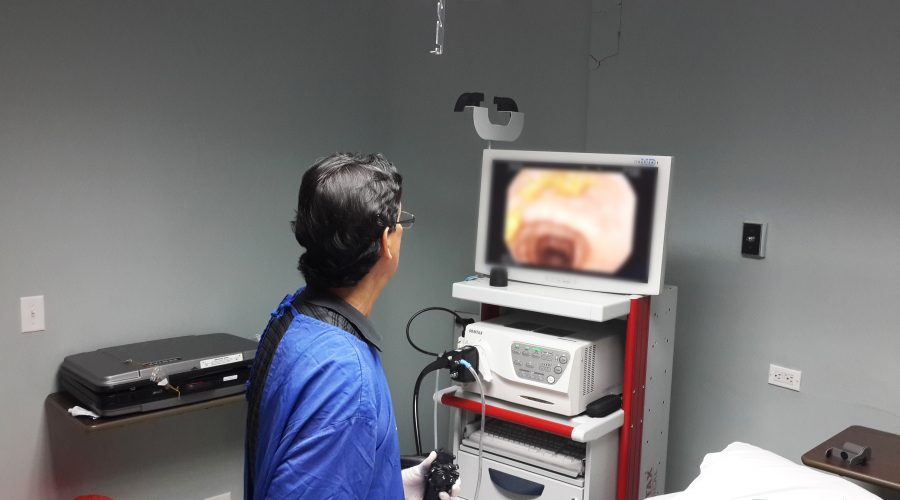
Colonoscopy is a safe and effective method of examining the entire lining of the colon and rectum, and also, if necessary, the end of the small intestine (terminal ileum), using a long, flexible tubular instrument called a colonoscope.
Most colonoscopies are done on an outpatient basis with minimal discomfort and discomfort thanks to anesthesia.
Benefits:
- Identify and / or correct problems in the colon.
- Resolution of diseases such as polyps resection.
- Diagnosis and control of inflammatory bowel diseases such as Crohn's disease or ulcerative colitis.
- Taking samples, tissues or biopsies.
Preparation:
To get the full benefits of the exam, the colon must be clean and free from stool. It involves drinking a solution, which cleanses the colon, or taking laxatives and enemas. Generally the patient drinks clear liquids and does not eat solid foods for a day before the exam.
The doctor advises the patient about using regular medicines during this time.
The procedure takes 15 to 30 minutes and since the patient is sedated, they usually do not remember it. The patient then goes to the recovery area to have his vital signs monitored until he is fully awake. It is normal to experience mild cramping or pressure in the abdomen after the exam. Typically this decreases within an hour.













